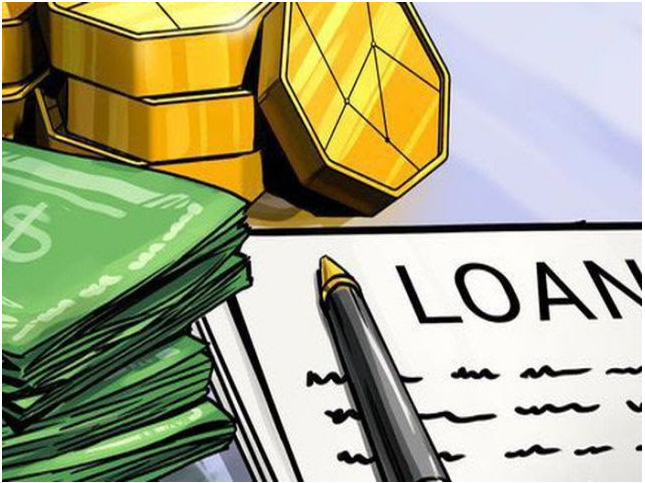What is a bill of exchange? What are the regulations on the contents of bill of exchange in Vietnam? - Binh Nguyen (Long An, Vietnam)

Vietnam: What is a bill of exchange? Contents of bill of exchange (Internet image)
1. What is a bill of exchange?
Pursuant to Clause 2, Article 4 of the Law on Negotiable Instruments 2005, bill of exchange is defined as follows:
Bill of exchange means a valuable paper created by a drawer, requesting the drawee to pay unconditionally a specific sum upon demand or upon a fixed time in the future to the beneficiary.
2. Contents of bills of exchange
According to Article 16 of the Law on Negotiable Instruments 2005, the a bill of exchange include:
- A bill of exchange must include the following contents:
+ The words "Bill of Exchange" written on the front of the bill of exchange;
+ An order for unconditional payment of a fixed sum of money;
+ The period for payment;
+ The place for payment;
+ The name of the drawee being an organization or the full name of the drawee being an individual, and the address of the drawee;
+ The name of the beneficiary being an organization or the full name of the beneficiary being an individual who is designated by the drawer or in favour of whom [the drawer] has made the request for payment of the bill of exchange to the order of the beneficiary or the request for payment of the bill of exchange to the bearer1 .
+ The place and date of signing and issuance;
+ The name of the drawer being an organization or the full name of the drawer being an individual, and the address of the drawer.
- A bill of exchange which omits any one of the contents stipulated in clause 1 of Article 16 of the Law on Negotiable Instruments 2005 shall be invalid, except for the following cases:
+ Where the period for payment is not recorded on the bill of exchange, the bill of exchange shall be paid immediately upon presentation;
+ Where the place for payment is not recorded on the bill of exchange, the bill of exchange shall be paid at the address of the drawee;
+ Where the place of signing and issuance is not specified on the bill of exchange, the bill of exchange shall be deemed to have been drawn at the address of the drawer.
- When the sum of money written in figures on a bill of exchange is different from the sum
of money written in words, the sum of money written in words shall be valid for payment.
Where the sum of money is written twice or more in words or in figures on a bill of exchange and they are different, the smallest sum of money written in words shall be valid for payment.
- Where a bill of exchange does not have sufficient space for writing, it may have an additional sheet attached.
The sheet shall be used for recording details of guarantee, endorsement, pledge or collection.
The person who is the first to prepare an additional sheet must attach it to the bill of exchange and sign across the edges of the additional sheet and the bill of exchange.
3. Obligations of drawers in Vietnam
Pursuant to Article 17 of the Law on Negotiable Instruments 2005, obligations of drawers are as follows:
- The drawer shall be obliged to pay the sum in the bill of exchange to the beneficiary when the bill of exchange is dishonoured by non-acceptance or by non-payment.
- Where the endorser or the guarantor has made payment of the bill of exchange to the beneficiary after the bill of exchange was dishonoured by non-acceptance or by non- payment, the drawer shall be obliged to pay the sum stated on such bill of exchange to the endorser or the guarantor.
4. Present bill of exchange for acceptance
According to Article 18 of the Law on Negotiable Instruments 2005, the presentation of bills of exchange to request acceptance is as follows:
- The beneficiary must present a bill of exchange to request acceptance in the following cases:
+ The drawer has written on the bill of exchange this bill of exchange must be presented to request acceptance;
+ A bill of exchange on which a period for payment is written in accordance with article 42.1(b) of the Law on Negotiable Instruments 2005 must be presented to request acceptance within one year from the date of signing and issuance.
- The presentation of a bill of exchange to request acceptance shall be deemed to be valid when the beneficiary or his/her lawful representative presents the bill of exchange at the right place for payment and during working hours of the drawee and prior to expiry of the date of maturity.
- Bills of exchange may be presented to request acceptance in the form of registered mail via the public postal network. In this case, the date of presentation of a bill of exchange for acceptance shall be the date recorded on the postmark affixed by the sending post office.
5. Period for acceptance in Vietnam
According to Article 19 of the Law on Negotiable Instruments 2005, the period for acceptance of bill of exchange is as follows:
The drawee shall accept or refuse to accept a bill of exchange within two working days from the date on which the bill of exchange is presented.
Where a bill of exchange is presented in the form of registered mail via the public postal network, this period shall commence from the date on which the drawee signs [a record] for certification of receipt of the bill of exchange.
6. Breach of the obligation to present bills of exchange in order to request acceptance in Vietnam
Pursuant to Article 20 of the Law on Negotiable Instruments 2005, the breach of the obligation to present bills of exchange in order to request acceptance is as follows:
When the beneficiary fails to present a bill of exchange in accordance with article 18.1 of the Law on Negotiable Instruments 2005, the drawer, the endorser and the guarantor of such persons,
Except for the guarantor of the drawee, shall not be obliged to pay such bill of exchange.
7. Form and contents of acceptance in Vietnam
According to Article 21 of the Law on Negotiable Instruments 2005, the form and contents of acceptance of bill of exchange are as follows:
- The drawee shall carry out the acceptance of a bill of exchange by writing on the front of the bill of exchange the word "accepted", the date of acceptance and his/her signature.
- Where only a part of the sum written on the bill of exchange is accepted, the drawee must specify the sum accepted.
8. Obligations of the acceptor in Vietnam
Article 22 of the Law on Negotiable Instruments 2005 stipulates the obligations of the acceptor as follows:
Upon acceptance of a bill of exchange, the acceptor shall be obliged to pay unconditionally the bill of exchange in accordance with the contents as accepted to the beneficiary or person who has paid the bill of exchange in accordance with the Law on Negotiable Instruments 2005.
9. Refusal to accept
Pursuant to Article 23 of the Law on Negotiable Instruments 2005 provides for the refusal to accept as follows:
- A bill of exchange shall be deemed to have been dishonoured by non-acceptance if it is not accepted by the drawee within the period specified in article 19 of the Law on Negotiable Instruments 2005.
- When a bill of exchange is dishonoured by non-acceptance in part or in full, the beneficiary shall be entitled to have immediate recourse to the previous endorser, the drawer or the guarantor in accordance with article 48 of the Law on Negotiable Instruments 2005.
Ngoc Nhi
- Key word:
- bill of exchange in Vietnam
 Article table of contents
Article table of contents






.Medium.png)
.Medium.png)
.Medium.png)
.Medium.png)
